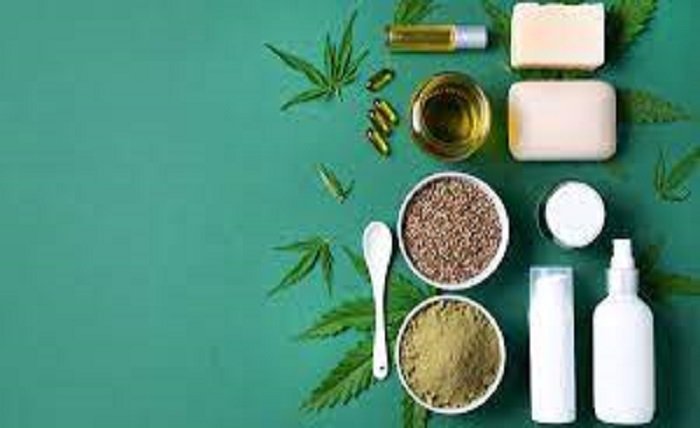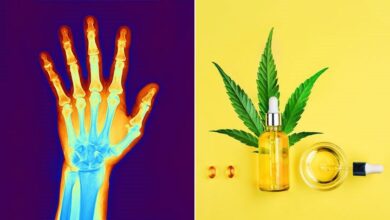Does CBD Get You High: Debunking the Myths and Exploring the Benefits

In recent years, CBD (cannabidiol) has gained significant attention for its potential health benefits. However, there are still misconceptions surrounding this compound, particularly whether it can induce a “high” like its counterpart, THC (tetrahydrocannabinol). In this article, we will explore the effects of CBD and dispel common myths, providing a comprehensive understanding of its properties and potential benefits.
Understanding CBD and THC: The Differences Explained
CBD and THC are both compounds derived from the cannabis plant, but they have distinct characteristics. THC is the psychoactive compound responsible for the “high” sensation often associated with marijuana use. On the other hand, CBD is non-intoxicating and does not produce the same psychoactive effects.
The Science Behind CBD
CBD interacts with the body’s endocannabinoid system (ECS), a complex network of receptors and enzymes involved in maintaining balance and regulating various bodily functions. Unlike THC, CBD does not bind strongly to the ECS receptors but instead modulates them, influencing the overall functioning of the system.
CBD’s Interaction with the Body’s Endocannabinoid System
The endocannabinoid system plays a crucial role in regulating mood, pain sensation, sleep, appetite, and immune response. CBD can indirectly affect these functions by interacting with the ECS receptors, promoting homeostasis and potentially providing therapeutic benefits.
Debunking the Myth: CBD and Psychoactive Effects
Contrary to popular belief, CBD does not produce a “high” or alter an individual’s state of mind. It lacks the psychoactive properties associated with THC, making it a suitable option for individuals seeking the potential benefits of cannabis without the euphoric effects.
The Benefits of CBD: An Overview
Extensive research suggests that CBD may offer various therapeutic benefits. While further studies are needed, preliminary evidence indicates its potential effectiveness in managing pain, reducing anxiety and depression symptoms, alleviating cancer-related side effects, and supporting overall well-being.
Potential Therapeutic Uses of CBD
- Pain Management: CBD may help alleviate chronic pain by interacting with receptors involved in pain perception.
- Anxiety and Depression: Research suggests that CBD may have an anxiolytic and antidepressant effect, potentially reducing symptoms associated with anxiety disorders and depression.
- Cancer-Related Symptoms: CBD could assist in mitigating chemotherapy-induced nausea, vomiting, and pain, providing relief to cancer patients.
- Neuroprotective Properties: Studies show that CBD exhibits neuroprotective properties, potentially benefiting individuals with neurological conditions like epilepsy and multiple sclerosis.
- Skin Health: CBD-infused topical products may have anti-inflammatory and antioxidant properties, potentially benefiting individuals with skin conditions such as acne and psoriasis.
CBD Products: What to Look for and How to Choose
When selecting CBD products, it’s essential to consider factors such as the product’s source, manufacturing process, CBD concentration, and third-party testing. Opting for reputable brands that provide transparency and quality assurance ensures a safe and effective CBD experience.
CBD Dosage and Administration
Determining the right CBD dosage depends on several factors, including individual body chemistry, desired effects, and the method of administration. It’s advisable to start with a low dosage and gradually increase until the desired results are achieved. Consulting with a healthcare professional can also provide personalized guidance.
Side Effects and Safety Considerations
While CBD is generally well-tolerated, it may cause mild side effects such as drowsiness, dry mouth, and diarrhea in some individuals. It’s crucial to be aware of potential drug interactions, especially for those taking prescription medications. Consulting a healthcare professional before starting CBD is recommended.
Legal Status of CBD
The legal status of CBD varies worldwide. In some countries, CBD is legal for medical and/or recreational use, while in others, it may be restricted or prohibited. Understanding the local laws and regulations regarding CBD is important before purchasing or using CBD products.
CBD and Drug Testing: What You Need to Know
Although CBD itself is unlikely to result in a positive drug test, some CBD products may contain trace amounts of THC. Individuals subject to drug testing should opt for CBD products that undergo third-party testing and have THC levels below the legal limit to avoid any potential complications.
CBD vs. THC: A Brief Comparison
CBD and THC have distinct properties and effects. While CBD offers potential therapeutic benefits without the psychoactive effects, THC is responsible for the intoxicating “high” associated with marijuana use. Understanding their differences can help individuals make informed decisions about their cannabis consumption.
The Future of CBD Research
As CBD continues to gain popularity, ongoing research aims to uncover its full potential and explore its effects in various health conditions. With increasing scientific interest and public demand, further studies will provide a deeper understanding of CBD’s mechanisms of action and its potential role in healthcare.
Conclusion
CBD does not get you high. It is a non-intoxicating compound with potential therapeutic benefits. By interacting with the body’s endocannabinoid system, CBD may provide relief from pain, anxiety, depression, and other conditions. Understanding the differences between CBD and THC is crucial for making informed choices about cannabis use.




